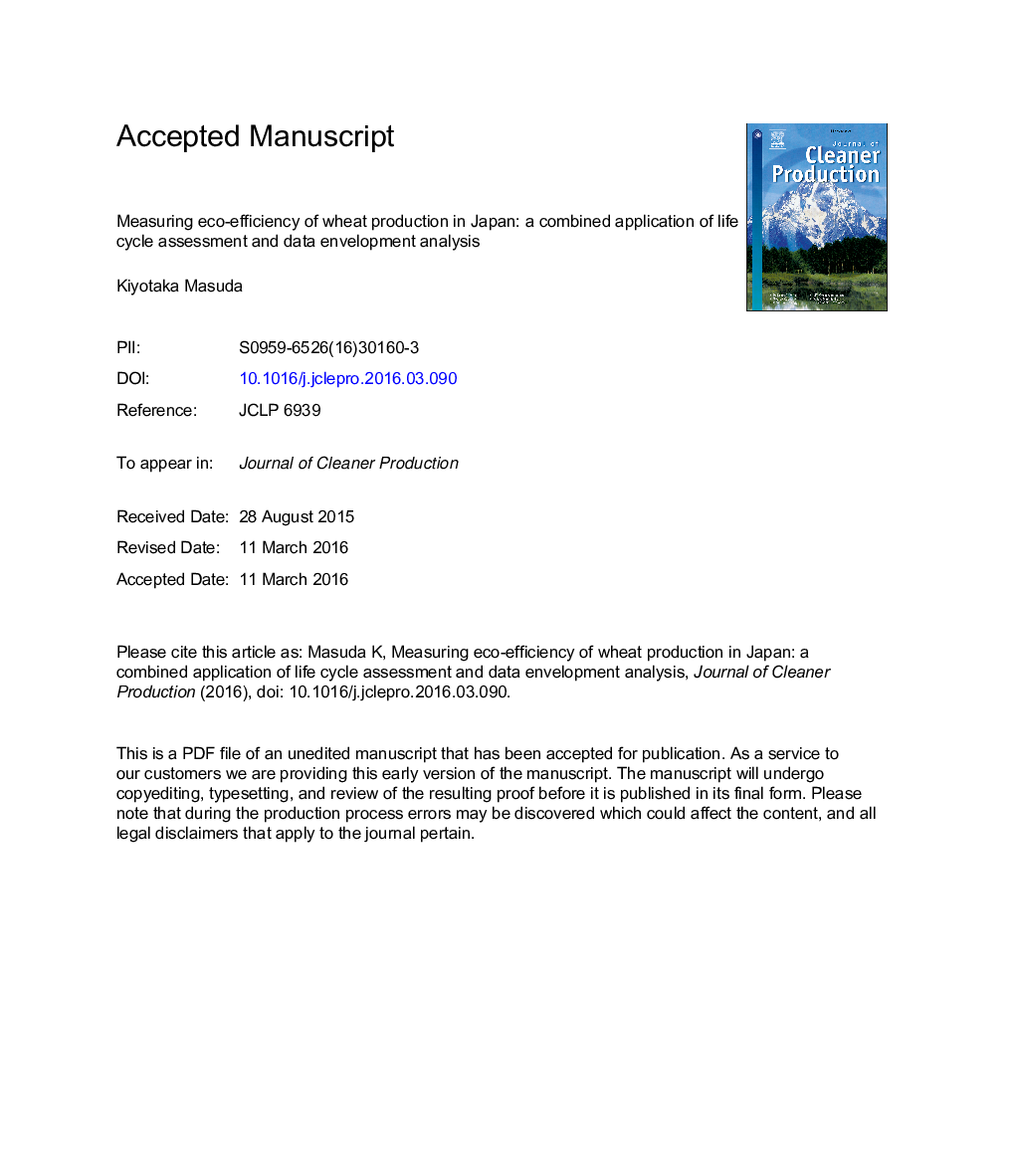| Article ID | Journal | Published Year | Pages | File Type |
|---|---|---|---|---|
| 8102112 | Journal of Cleaner Production | 2016 | 41 Pages |
Abstract
Wheat is one of the most important cereal crops for human consumption. Understanding the eco-efficiency of wheat production is helpful in achieving sustainable agriculture. In this study, the eco-efficiency of wheat production in Japan at a regional scale was measured using a combined methodology of life cycle assessment and data envelopment analysis. Wheat production in paddy fields with inferior drainage performance was compared with production in upland fields with good growing conditions. The eco-efficiency indicator was defined as wheat yield per single environmental impact index, including global warming as a global environmental category and aquatic eutrophication as a regional one. The results indicate that eco-efficient wheat production can occur in both good and poor growing conditions, with a wheat yield obtained by an adequate application of nitrogen fertilizer. The mitigation of aquatic eutrophication caused by the excessive use of nitrogen fertilizer is an important factor in improving the eco-efficiency of wheat production.
Related Topics
Physical Sciences and Engineering
Energy
Renewable Energy, Sustainability and the Environment
Authors
Kiyotaka Masuda,
